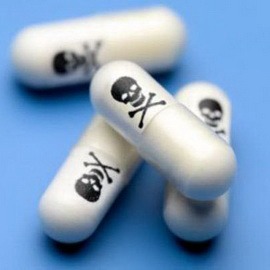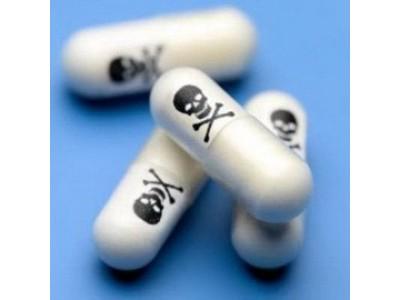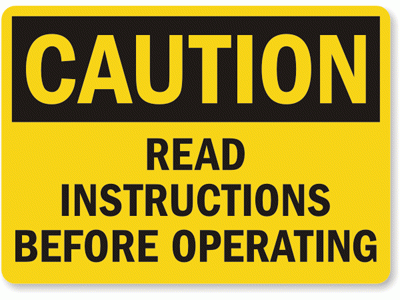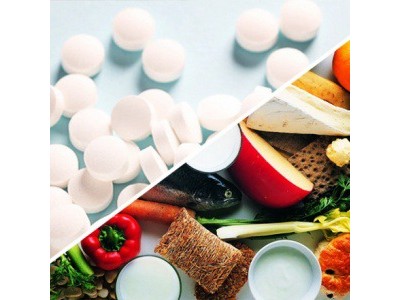 Perhaps the title of this article frightened you. It’s true, rarely, but still happen cases of drug overdose. But do not worry! In the life of each person there is a time when you cannot avoid using medicines. This is normal and not unsuccessfully the mankind has been inventing various drugs for centuries to improve the quality of life, fight illnesses and prolong life. We have achieved colossal results — now the pharmacological industry is more developed than ever before in history. Nevertheless, it must be understood that the pharmaceuticals are very complex in their structure and composition and their use should be treated with the utmost seriousness.
Perhaps the title of this article frightened you. It’s true, rarely, but still happen cases of drug overdose. But do not worry! In the life of each person there is a time when you cannot avoid using medicines. This is normal and not unsuccessfully the mankind has been inventing various drugs for centuries to improve the quality of life, fight illnesses and prolong life. We have achieved colossal results — now the pharmacological industry is more developed than ever before in history. Nevertheless, it must be understood that the pharmaceuticals are very complex in their structure and composition and their use should be treated with the utmost seriousness.
Drug overdosing can occur when:
- Incorrectly selected dosage of the medicine
- The concomitant diseases and the state of internal organs that remove the active ingredients of medicines from the body were not taken into account. Virtually any medical product is excreted by the liver and / or kidneys. Consequently, if these organs are not OK the withdrawal of medicines slows down; there is accumulation of active ingredients in large quantities and poisoning of the organism
- If a person does not follow the recommendations of the attending physician on combining a medicine with food, alcohol, etc.
- Irresponsible self-treatment takes place. Uncontrolled reception of medicines often ends up sad, up to a fatal outcome
- Carelessness. Elderly people often confuse drugs, especially with a large number of various illnesses
- Pills and capsules are available and attractive for children. Some medications look very "tasty"
Drug overdose symptoms are rather insidious, because it is difficult enough to correctly diagnose them even for an experienced health care professional. Kids are often exposed to such poisonings, so parents need to take care to hide the first-aid kit well. Each of us should learn about the symptoms that accompany the drug poisoning. After all, in some cases this knowledge can save human life.
Psychotropic drug overdose — the most common scenario. Most often in their practice, health care professionals have to deal with psychotropic drugs poisoning. Basically, we are talking about sedatives and tranquilizers, which account for the majority of all drug poisoning. It should be noted that death from such medicines is unlikely, but in combination with alcoholic beverages and in certain illnesses and conditions, an overdose can lead to fatal results. Barbiturates are often used by drug addicts to enhance the effect of drugs. Of course, such a combination cannot lead to anything good.
Early symptoms of drug overdose. The earliest sign of drug poisoning of psychotropic series is deep sleep. Pupils of a poisoned person are narrowed; they do not react to light. In this case, periodic attacks of aggression are possible, which are replaced by lethargy and inhibition. In a number of cases salivation and strabismus are observed.
If the effect of the medicine increases, then the symptoms of intoxication increase until the development of coma. The victim’s reflexes are inhibited, breathing becomes intermittent, and the heartbeat is difficult to determine.
Cardiac drug overdose. The second group of medicinal products, which might be dangerous, is medicines used for the treatment of cardiovascular diseases. These include antihypertensive drugs, beta-blockers, antiarrhythmic agents, calcium channel blockers and other medications.
In case of overdose by aforementioned medicines, operation of cardiac muscle is inhibited and vascular tone is greatly reduced. This can lead to a violation of the rhythm and a drop in cardiac output. The victim in this case may experience attacks of angina, secondary disorders of cerebral circulation, loss of consciousness and convulsive syndrome.
Overdose by other groups of medicines. Painkiller overdose is common. This often happens with derivatives of belladonna, antiallergic drugs, some groups of antidepressants and antiparkinson agents. In this case medications, dry mucous membranes, dilated pupils, palpitations, headache, dizziness and urinary retention are observed.
Overdose prevention:
- Store medicines in a special place, inaccessible to kids
- It is not allowed to store pills and capsules without packages. Carefully analyze the expiration dates and how to store the medicines you own. This is especially true for solutions and ampoules
- Keep instructions. There are described all possible adverse effects. If you feel any of these, you can consult a medical professional and reduce the dose or completely cancel the medicine (but only if the specialist approves). If you lost instruction to your medicines, great solution is to find these instructions online, on web sites of Portugal online pharmacies
- Abundant food and alcohol compete with most of the medicine. Follow the recommended diet and other tips
- Sign packages, jars or blisters if drugs are intended for older people with vision defects
- And, of course, it is unacceptable to combine any pharmaceuticals with excessive use of alcohol
Drug overdose treatment. First of all, if you noticed signs of drug overdose you need to call an ambulance. Do not panic. If you communicate with services such as 911 or 999 in the UK, the operator can tell you what to do to help the victim. These manipulations include: give a person a lot of water and induce vomiting. It is necessary to find out what drug caused the problem. In no case throw away the package and the remaining products. This is important not only for the sick, but also for the specialists who will later deal with the situation. If breath disappears, the pulse disappears on the carotid arteries; the pupils do not react to light — carry out a cardiopulmonary resuscitation before the arrival of the medics. Check whether the person is breathing and his or her heart rate every minute.
What not to do: do not provoke vomiting if a sick is unconscious — a person may choke, the same applies to the cardiac patients, in the later stages of pregnancy and in kids under 5 years of age, do not give them drinking soda or milk.
When the ambulance arrives, take them to the sick person and give them pills that remained. If you can, make a list of substances that the patient has taken on a permanent basis, since it can be a question of medical interaction.
In any case, you do not need to be scared and refuse to take medication because of the fear of overdose. Their main purpose is treatment and not vice versa. Just do everything as your physician says or as described in the instructions and everything will be fine.



